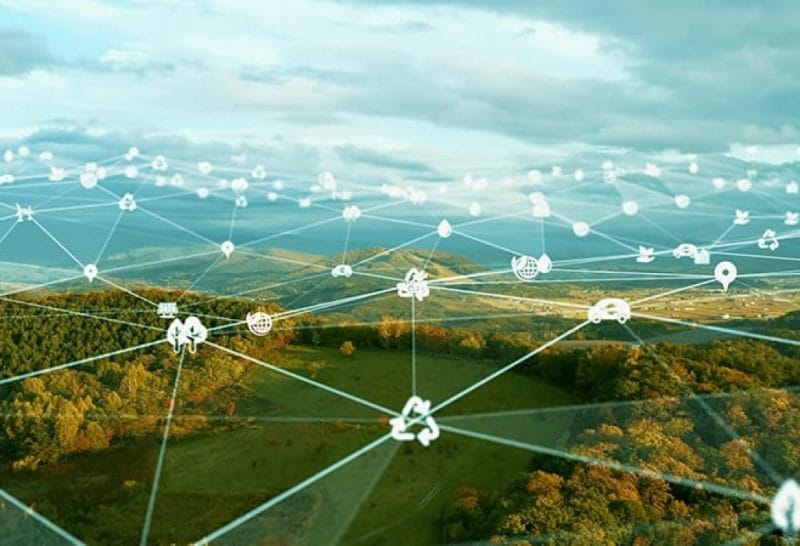
Alors que la tension mondiale sur l’énergie fait régulièrement la une des médias et que les pressions écologiques pour réduire les émissions s’accélèrent, la transition numérique est considérée comme un moyen de réduire la consommation d’énergie dans un grand nombres de secteurs (IT for green), on considère même qu’il ne sera pas possible de maitriser le changement climatique sans un recours massif au numérique.
Mais que fait le « numérique » pour réduire sa propre empreinte environnementale ? Que font les organisations pour maitriser leurs environnements technologiques ?
Selon l’Arcep le numérique représente 4% des émissions de gaz à effet de serre (GES) dans le monde avec une prévision d’augmentation très importante (+ 60%) d’ici 2040. En France, on estime que le numérique consomme déjà 8,5% de l’électricité du pays.
Pour essayer de maitriser cette augmentation, The Shift Project (rapport « Pour une sobriété numérique ») nous propose une approche « Lean » autrement dit au plus juste : « Acheter les équipements les moins puissants possibles, les changer le moins possible et réduire les usages énergivores superflus ». Cette approche voulant contrecarrer la part prépondérante de la production et l’utilisation des équipements numériques dans les émissions de GES.
Mais, dans ce mode de data, il est également temps de se confronter à l’impact écologique de la gestion des données. Nous voyons depuis des années une explosion des flux de données (à tel point que celle-ci peut représenter 80 % du trafic écoulé sur le réseau de certains opérateurs).
Cette augmentation du trafic s’accompagne d’une augmentation du volume de données stockées dans les data centers, qui sont aussi indispensables qu’énergivores, sans eux il est impossible de faire fonctionner les activités numériques et, en contrepartie, ils vont consommer jusqu’à 13% de l’électricité mondiale d’ici 2030.
Cette fuite en avant contribue à un doublement du volume de données en entreprise tous les 2 ans. Doublement des données mais pour quel bénéfice ? Que font les entreprises de ce Big data ? Quelle est l’information véritablement utile à leur business model et est-elle utilisable facilement ?
Le patron de « The Shift Project » Jean-Marc Jancovici, met souvent en avant trois approches pour économiser de l’énergie : l’efficacité, la sobriété et la pauvreté. Essayons de plaquer ces principes à la gestion des données en entreprise.
L’efficacité. C’est concrètement le sujet le plus évident à traiter mais certainement le plus « politique ». La donnée est partout en entreprise, souvent recopiée d’un système à l’autre, avec des problèmes de redondance et de qualité. Par exemple, dans combien de système retrouve-t-on les données « clients » dans une entreprise ?
Pour être efficace, il faut faire des choix « Politiques », structurants, prioriser les besoins, responsabiliser les collaborateurs, en un mot : « manager » les données. Facile à dire, pas simple à mettre en œuvre.
La Sobriété. Il semble clair que pour beaucoup d’entreprises l’extraordinaire offre Cloud des hyperscalers n’oblige plus à la réflexion. Créer de nouveaux environnements numériques, augmenter le stockage, multiplier la puissance de calcul, tout cela est dématérialisé et se fait en quelques clics.
Il est désormais plus simple d’acheter de nouvelles ressources numériques que de recycler les anciennes… d’aller copier des données sur une plateforme centralisée plutôt que d’optimiser les bases de données opérationnelles.
Le surcroît de ressources ainsi créé est alors utilisé pour une nouvelle consommation voire une surconsommation (le fameux effet-rebond). Tout ceci sans remise en question de l’utilisation des données pour le bon fonctionnement de l’entreprise et d’analyse sur l’impact environnemental.
Pour éviter la « Pauvreté » (une sobriété contrainte), il est certainement temps de compléter l’approche « Lean » par une approche « by design » des architectures numériques (et en particulier data) pour intégrer l’impact écologique comme critère de décision dans tous les choix d’organisation ou de structuration.
Le numérique s’apparente désormais à une brique essentielle du fonctionnement de nos économies et de nos sociétés.
Nous pouvons espérer du numérique un impact positif sur les autres industries (le numérique serait-il le principal facteur du scope 4 i.e : les émissions évitées dans un bilan carbone, des autres industries ?), et pour ceci la sobriété numérique est un sujet d’importance qui demande un véritable changement de Mindset.
Il est temps de sortir de la logique du « toujours plus » et de commencer à traiter les sujets au regard d’une « juste échelle » et d’un « data discernement ». Cela permettra de réduire l’impact environnemental et énergétique du numérique, une meilleure maitrise des organisations sur leurs données et de favoriser une approche plus responsable et durable.

Samuel Descroix
Partner Data thinking





